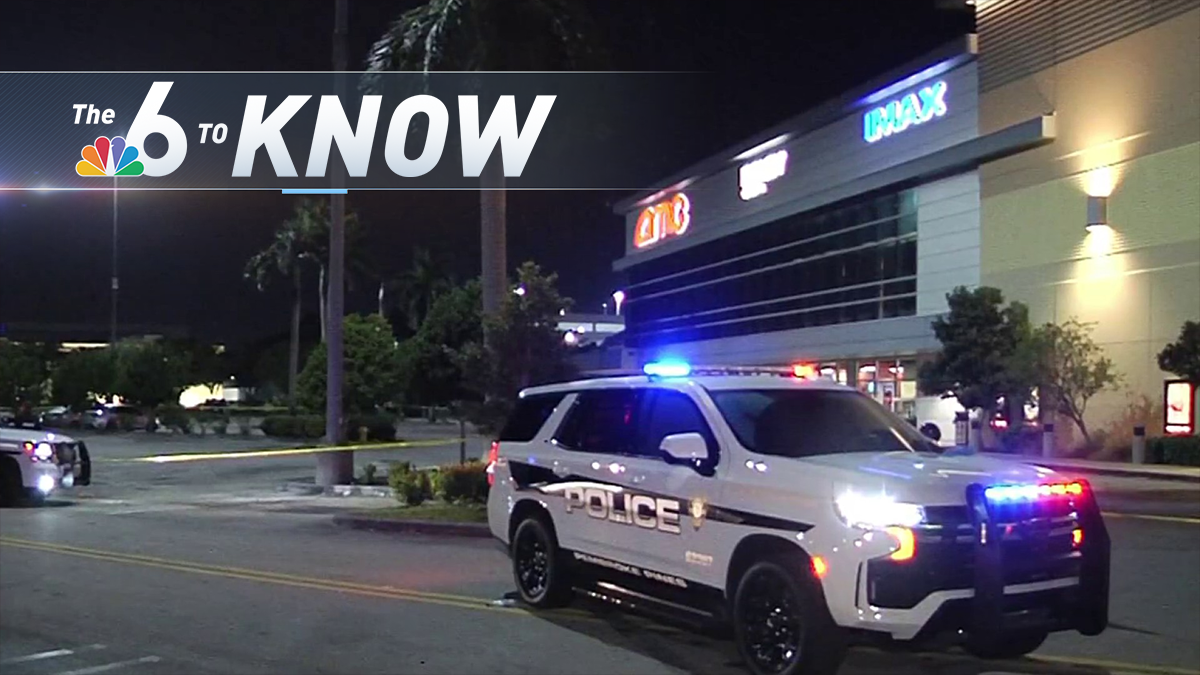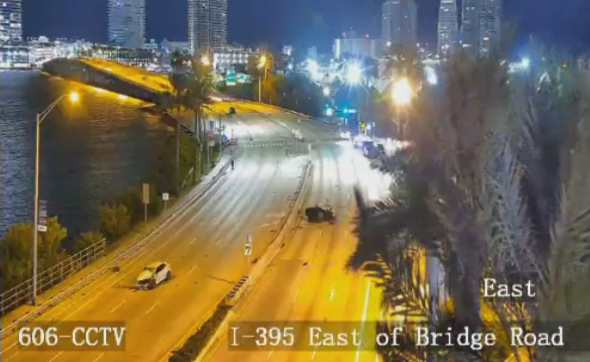In the wake of the most recent condominium evacuation in South Florida, a legal expert is explaining the options tenants have.
A Pembroke Pines apartment complex was evacuated after the city deemed the building unsafe, partly due to "signs of structural deterioration."
Residents told NBC6 that they had been waiting for repairs months before the evacuation notice, and now just want to move out.
Watch NBC6 free wherever you are
Senior attorney Lissie Salazar, with Legal Services of Greater Miami, sat down with NBC6 to give insight into tenants' options when faced with an evacuation order.
What are the legal options when someone is forced out of their home due to unsafe conditions?
Get local news you need to know to start your day with NBC 6's News Headlines newsletter.
Salazar noted that her answer relates only to tenants and not owners -- under the Miami-Dade County Ordinance 8-5, Subsection F -- enacted in 2022. She said she cannot speak to Broward County unless she refers to Florida law.
Salazar explained that when building officials say tenants have to vacate for safety reasons and already determined that it was due to the owner's negligence -- that owner must make arrangements for those tenants within eight hours of the requirement to vacate. They are to provide temporary housing for at least three months or until the property is made safe.
Salazar then broke down a situation where the owner does not meet those obligations.
Local
"The ordinance says that the county can provide emergency housing and meals for seven days – and that the county can provide financial assistance for up to three months of rent," Salazar explained. "The county has power to go back and try to claw back whatever they spent from the owner."
The Miami-Dade Ordinance has since been complicated due to legislation Florida passed in July stripping municipalities from the ability to enact local tenant protections. House Bill 1417, known as the Preemption Bill, "preempts local tenant-rights ordinances and it says that there will be only one uniform law across the state” said Salazar.
Salazar believes the future of the Miami-Dade ordinance is unclear at this time, as the Preemption Bill has not been litigated yet.
Salazar noted that the Legal Services of Greater Miami believes Miami-Dade’s ordinance should remain in effect because it appears in the section of the ordinances that relate to the building codes and safety and not in the section that relates to the Tenant Bill of Rights.
Can residents sue?
“Anyone can file a lawsuit in court at any time – whether you’ll prevail in that case is a different matter," Salazar said.
“You can file a lawsuit alleging that the landlord basically breached their obligation under your lease,” added Salazar. “So, the lease required the landlord to do X, Y and Z – and they did not do that, and you’ve suffered damages as a result – meaning that you’ve had to incur expenses or other losses – then, you can certainly file a lawsuit at any time. You’d have to prove your case.”
Do leases usually address forced evacuations?
“I don’t think it’s very common for the lease to say that 'if the government shuts the building down, then this is what will happen.' I haven’t seen that." Salazar explained.
"Leases sometimes say -- if the unit becomes unlivable, rent will be abated for a period or something like that," she continued. "But, you’d have to read the particular terms of your lease."
Does the cause of an evacuation need to be investigated first – to determine whether conditions were within the residents’ control?
In short, Salazar said this is exactly the case.
"Building officials have to determine that the unsafe conditions are due to the negligence of the owner – in order for the protection to kick in. So yes, it would be up to the building official to make that determination," she said.
If tenants would rather move out than wait for management to fix things – would they be allowed to break leases in that case?
Salazar explained that unit owners don't usually have control over a building's structural problems, so it would not be in your landlord's hands. However, you should always look at the terms of your lease.
"If you’re renting the unit and the problem is structural – then your unit owner is probably not responsible for that issue. The issues need to be address by the condo association," said Salazar.
What if an issue is in the landlord's control?
Salazar explained that if a landlord refuses to make repairs to a unit, then a tenant can "send a seven-day rent withholding letter or a seven-day letter terminating the tenancy."
"You can say -- if you don’t make these repairs in seven days, then I’m going to be moving out or I’m going to withhold the rent that comes through the following month," Salazar explained.
"Under Landlord/Tenant Law – if you are in a situation where there are bad conditions in your unit – the applicable statute is Florida Statute is 83.51 and Florida Statue 83.60 – those lay out what the landlord’s obligations are to maintain the unit," Salazar continued.
She explained in that case, it would be the unit, but in the Pembroke Pines condo case, it is the structural integrity of the whole building, which would not be in the control of that unit’s landlord.



